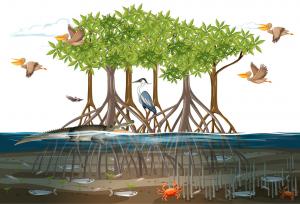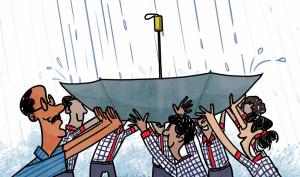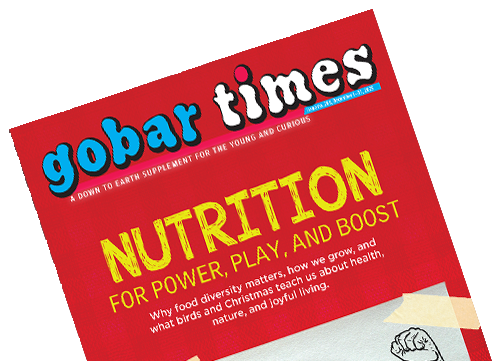
These salt-loving trees safeguard shores, store carbon, and sustain countless species—helping balance ecosystems and fight climate change

Through rainwater harvesting, green pledges, and online campaigns, one educator proves how simple steps can create lasting ripples of change.

A young observer shares what really goes on inside climate talks—SB62 at Bonn, Germany—and why the world’s future depends on what happens there.

Oops! Someone forgot to count war as a climate villain! From tanks that guzzle fuel to bombs that leave behind smoke and rubble, wars make our planet cry. Militaries cause 5.5% of greenhouse emissions—more than international aviation and shipping combined! Their carbon footprint ranks just behind the US, China, and India. Even forests, animals, and rivers aren’t safe when battles begin. The Ukraine war alone released more pollution than some entire European countries! In Gaza, it’s being called ecocide. Maybe that’s why Mr. Trump looks sorry here (finally!). Because no matter who wins the war—the …

Explore how climate change is impacting India's biodiversity, agriculture, and daily lives—mirroring a global crisis that demands urgent action.

This entry won the second prize in the Class 6–8 category of the Dialogue Dhamaka Contest. This comic contest invites young eco-enthusiasts to give Babbi her voice—capturing wit, wisdom, and critical thinking about food and climate. Participants explore Babbi’s world, learn from her adventures, and craft dialogues that bring her quirky insights into life. The most creative entries are edited and published here to celebrate their talent.

This entry won the first prize in the Class 11–12 category of the Dialogue Dhamaka Contest. This comic contest invites young eco-enthusiasts to give Babbi her voice—capturing wit, wisdom, and critical thinking about food and climate. Participants explore Babbi’s world, learn from her adventures, and craft dialogues that bring her quirky insights into life. The most creative entries are edited and published here to celebrate their talent.

This entry won the second prize in the Class 11–12 category of the Dialogue Dhamaka Contest. This comic contest invites young eco-enthusiasts to give Babbi her voice—capturing wit, wisdom, and critical thinking about food and climate. Participants explore Babbi’s world, learn from her adventures, and craft dialogues that bring her quirky insights into life. The most creative entries are edited and published here to celebrate their talent.

This entry won the second prize in the Class 9–10 category of the Dialogue Dhamaka Contest. This comic contest invites young eco-enthusiasts to give Babbi her voice—capturing wit, wisdom, and critical thinking about food and climate. Participants explore Babbi’s world, learn from her adventures, and craft dialogues that bring her quirky insights into life. The most creative entries are edited and published here to celebrate their talent.

This entry won the first prize in the Class 9–10 category of the Dialogue Dhamaka Contest. This comic contest invites young eco-enthusiasts to give Babbi her voice—capturing wit, wisdom, and critical thinking about food and climate. Participants explore Babbi’s world, learn from her adventures, and craft dialogues that bring her quirky insights into life. The most creative entries are edited and published here to celebrate their talent.

